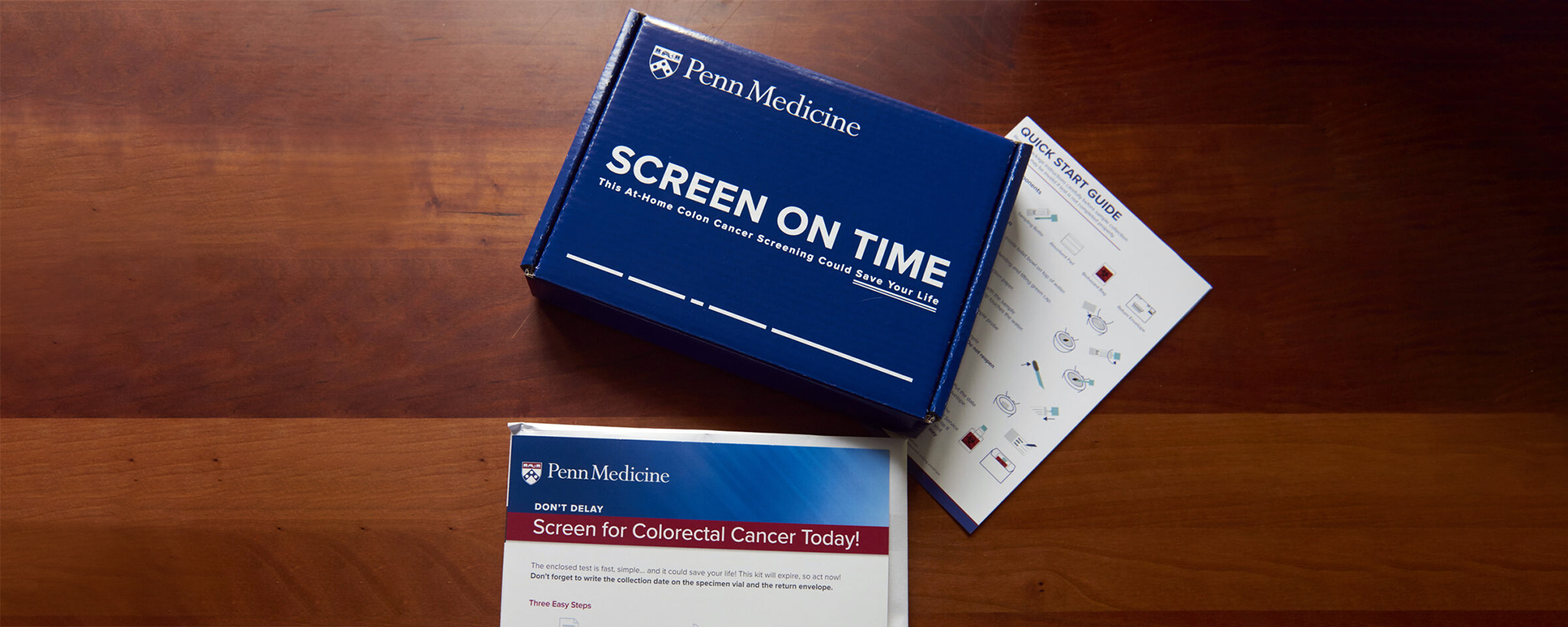
Default Options to Optimize Colorectal Cancer Screening Outreach
Project status
Collaborators
Chyke Doubeni, MD, MPH
Tanya Khan, MD
Carmen Guerra, MD, MSCE
Kevin Volpp, MD, PhD
Timothy McAuliffe
Innovation leads
Funding
Abramson Cancer Center, University of Pennsylvania
National Cancer Institute
Opportunity
Colorectal cancer (CRC) is the second leading cause of cancer-related deaths among men and women in the United States. It is recommended that individuals begin regular screenings for CRC at the age of 45. Screening can prevent cancer by discovering precancerous polyps that can be removed before they turn into cancer. It can also find CRC early when treatment often leads to a cure.
Patients have several options when it comes to completing screening. The most common are colonoscopy and FIT (fecal immunochemical test).
Unfortunately, millions of people in the United States are not getting screened for CRC.
Intervention
We conducted multiple studies to explore whether opt-out messaging could improve completion rates of FIT kits mailed to patient homes.
A 2017 study compared the effectiveness of opt-in versus opt-out messaging. Eligible patients received invitations through the electronic health record (EHR) portal or by mail with randomization to receive a mailed FIT kit: 1) only if they actively opted‐in to do so (opt‐in) or 2) unless they opted out of screening (opt‐out).
In 2021, we ran a pilot that paired text messaging and opt-out FIT screening. We sent almost 4,000 testing kits to primary care patients due for a CRC screening who were based in communities with low screening rates. FIT kit packaging in this pilot was redesigned to be user-friendly and visually appealing, and text messages featured conversational, encouraging language.
And finally, in 2022, we sought to test if fancy branded FIT kit packaging along with mailed reminders and text messaging could increase uptake rates.
Impact
In the 2017 study, patients in the opt‐out group who did not opt out of FIT screening had a 29 percent FIT completion rate – nearly triple that of patients in the opt-in group who chose to participate. Less than 3 percent of patients in the opt-out group declined to get screened, and around 23 percent of the opt-in group accepted. These findings support the use of opt‐out messaging to boost participation in population health outreach efforts.
In the 2021 study, more than 25 percent of the recipients completed FIT screening.
And in the 2022 study, no difference was found in uptake between those who received the fancy packaging or standard FIT kits, but there was higher completion among those who received text messaging and among those who received a personalized mailed reminder. The results of these trials have led to health system investment in a centralized outreach program to longitudinally engage with patients about CRC and other screening activities. It also highlights the importance of individually evaluating different behavioral interventions, particularly those that require additional resources.